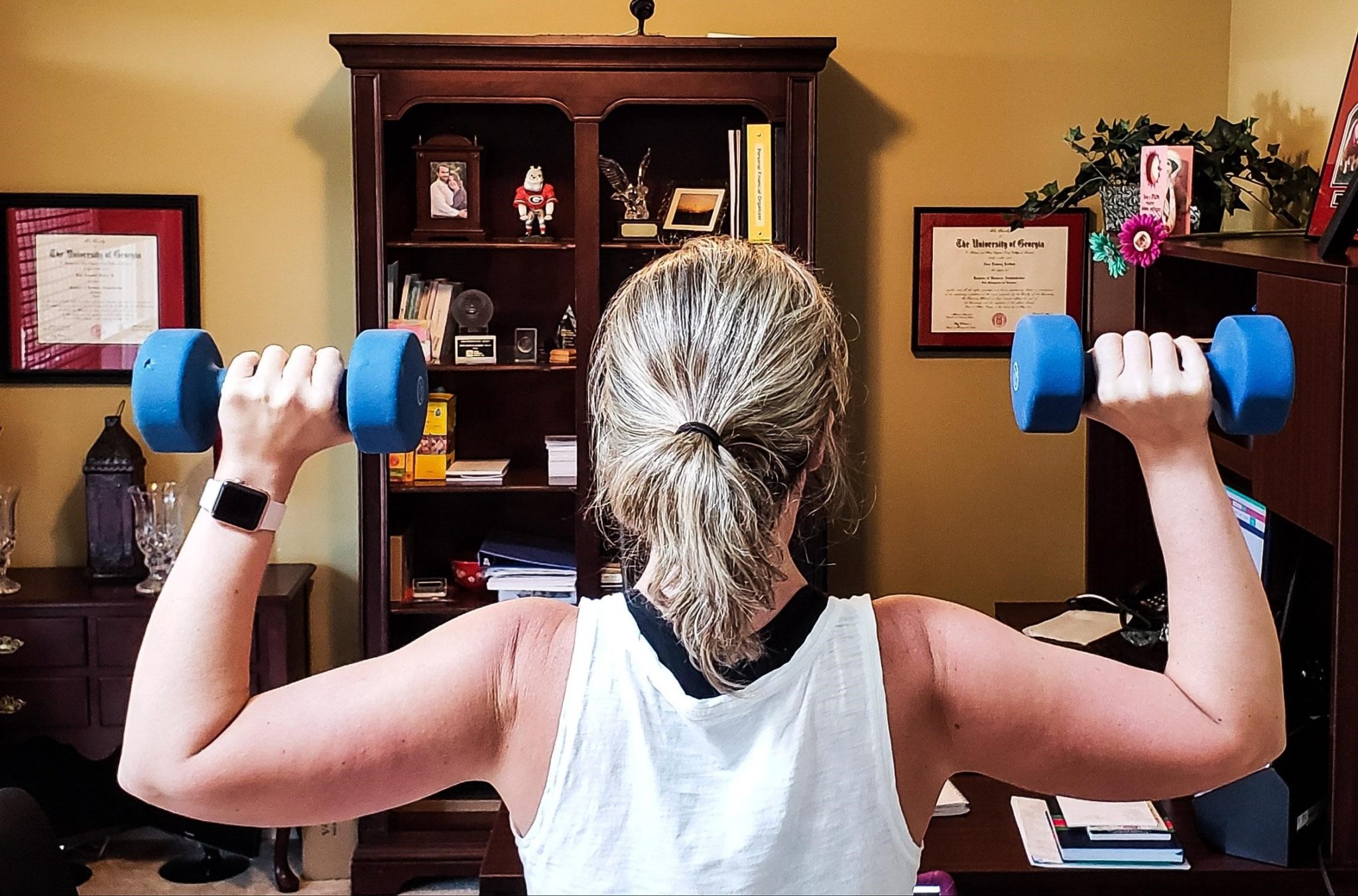Medical careers require dedication, a competent attitude, and a lifestyle fashioned around long hours and overnight shifts. The latter can cause both physical and emotional stress. Most healthcare professionals can regularly be found running to their next emergency, managing a busy ward, or tirelessly overseeing bustling outpatient and waiting areas. With today’s fast food options and easy access to processed foods, developing a healthy eating routine can be difficult even in the best of circumstances. For healthcare providers like doctors and nurses, it can seem nearly impossible.
However, with these healthy eating tips and tricks, you can stay on track with your diet and manage your nutrition for a healthy, happy work week at the hospital.
Why is healthy eating so difficult for doctors and nurses who work long hours?
Downtime in the healthcare field is hard to come by and even harder to enjoy. Doctors and nurses don’t often receive long meal breaks, if at all. And, they are understandably exhausted from long shifts. Most healthcare providers work inconsistent schedules, alternating day and night shifts. This disrupts the circadian rhythm, which can cause headaches, gastrointestinal issues, fatigue, and other problems.

Photo source: Shutterstock
Because mealtimes are often irregular, busy schedules can lead to snacking on quick processed foods like chips or unhealthy fast foods. Consuming these high-calorie low-nutrition meals can lead to a bevy of health issues down the road, including weight gain, fatigue, and heart health issues.
Irregular schedules also lead to missed meals. When we skip meals, our blood glucose levels drop. Skipping meals can cause tiredness, irritability and force the body to convert energy from less efficient sources. This equates to difficulty in thinking clearly and dizziness, which can impair performance and working ability. Skipping meals also leads to overeating when you do finally find time for a meal.
Related content: The Physician Burnout Burden: Why Doctors Need Help from Leadership
1. Stay Hydrated
Staying hydrated is an essential part of overall nutrition for everyone, but, for individuals with high-intensity work shifts, it is even more critical. Keeping your body hydrated helps to decrease the likelihood of headaches and diminish fatigue, as well as improve digestion, circulation, and body temperature.
Drinking water also helps us to feel fuller for longer, which means you are less likely to reach for snacks when you are well-hydrated. Always aim for the recommended eight 8-oz. glasses of water every day. You can easily monitor your water intake by packing a reusable water bottle for work.
Pro Tip: Add slices of cucumber, lemon, mint, or other fruits and berries to your water bottle to infuse it with a refreshing taste.
2. Skip the Caffeine
Many of us fall into the trap of reaching for sugary and caffeinated drinks when we need a boost of energy to get through a long shift, but caffeine might be sabotaging your efforts. While coffee is a natural stimulant that will increase your alertness and ability to concentrate in the short term, it also has long-term addictive qualities that can lead to caffeine dependency, nervousness, restlessness, muscle tremors, increased heart rate, upset stomach, and even insomnia.
Caffeine addiction is a vicious circle: The more tired you are, the more you drink, and the more you drink, the more incapable you become of getting a good night’s sleep and the more reliant you become on the effects of caffeine. As an alternative, reach for water instead. Or, if you are partial to the taste of coffee and tea, insist on the decaffeinated varieties. Green tea is an excellent option because it is low in caffeine and contains an amino acid called theanine which is said to improve mental alertness.
Pro Tip: If you do continue to consume caffeinated drinks, try to limit them to the first half of your shift, so the effects of the caffeine wear off before you go home and sleep.
Related Content:
The Good, the Bad, and the Ugly of Energy Boosters
What the Organic Label on Foods Really Means
3. Eat regularly
No matter what shifts you are working, make sure to maintain a regular eating schedule. Even if your “morning” is at 3 p.m. when you wake up, make sure to have “breakfast” and base the timing of your following meals and snacks off this first meal. Aim to eat your meals every four to five hours with small snacks in between.
Pro Tip: Remember, eating regular, small amounts of food is better for maintaining a healthy weight then eating one large meal to get all of your nutrition and calories, as this often leads to overeating and weight gain.
4. Healthy eating tips for doctors and nurses
When we think of the word “diet,” we conjure up images of people unhappily restricting themselves to small amounts of tasteless and unenjoyable foods. What “diet” really refers to is our pattern of food consumption.
Eating a healthy diet does not mean you restrict yourself entirely. Instead, you seek to maintain a balanced eating routine that includes items from all the basic food groups to ensure your body is getting the daily nutrients it requires.
Doing so is rare when your food sources are limited to take-away and the hospital vending machine. Eating healthfully does not mean eating bland foods; it means you make informed (but still delicious!) choices when it comes to your foods. Make sure meal times include some form of protein like eggs, grilled chicken, beef, or Greek yogurt. Vegetarians should look for sources of protein from the vegetable kingdom, such as tofu or nuts or the many new plant-based products, such as Beyond Meat coming to supermarkets these days. Protein helps you to feel fuller for longer and provides the body with much-needed energy during busy shifts.
Vegetables and greens provide essential vitamins and minerals that enable the immune system and metabolism to function correctly and prevent deficiencies, such as anemia. At each meal, aim to have vegetables taking up at least one half of your plate, with the other half divided between protein and carbohydrate sources. You can easily ensure your nutrition is en pointe by taking the time on your off days to meal prep for the week.
Pro Tip: For healthy snacks between meals, pack protein-heavy items such as nuts, healthy protein bars (check the label for calories and sugar), and yogurts that will make you feel full and provide much-needed energy. But remember, snacks cannot and should not replace full meals.
Related Content:
What You Need to Know About Plant-Based Diets
What the Organic Label on Foods Really Means
Final Thoughts
Developing a healthy eating routine takes a little bit of preparation and dedication. With a little bit of will power and commitment to your new healthy lifestyle, you’ll notice you feel more energized and capable, and that your favorite pair of scrubs fit a little bit better than they used to. Use these essential nutrition tips and tricks to take charge of your nutrition and invest in a healthier, stronger you today.
***
Love our content? Want more information on Nutrition, Diet and Healthy Eating? Signup for our Weekly Newsletter here.
Adela Ellis, BSN, RN
Adela Ellis is a full-time nurse and part-time ambassador for Infinity Scrubs. Adela attended the University of Arizona and has been a travel nurse for the last 6 years. She enjoys working with different doctors, nurses, and patients from all over the country and blogging about her experiences. In her free time, she loves true-crime podcasts and cooking for friends and family.
Comments:
Leave a Reply
Comment will held for moderation









I have found this article very useful. Thanks for sharing such important information, which I am going to keep in mind. I am also a food blogger and write about healthy foods, recipes, cooking tips, and much more. Here is the link to my blog
Hi Ms. Adela,
I am general practitioner for the past 35 years and I can understand what our practice can do to our eating habits. My day starts with breakfast around 9.00 a.m. to 10 a.m. After that, there is no fixed timescale for lunch and dinner. Your suggestions re: hydration is really good, which I do follow day to day and also advise my patients who have shift duty. Apart from this, I do write blogs on health issues wherein I have some simple recipes to maintain good health. Your article/ blog on eating habits for doctors and nurses is very good and I intend to share it on our doctor’s groups.
Thank you for your comment Dr. Rao. I have removed the link to your website as we do not all promotional links in comments. But readers who want that information can email you for the blog URL. Thanks again.
Thank you for sharing this information. I hope it will useful to many doctors and nurses.